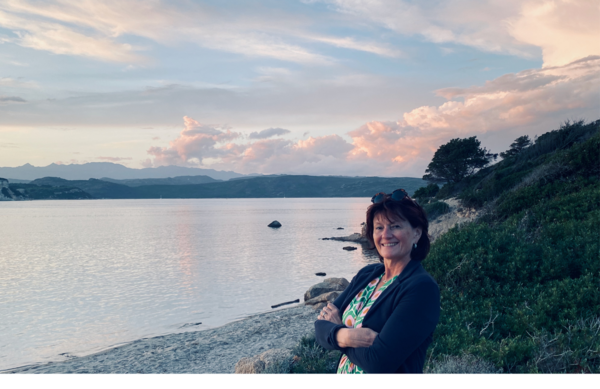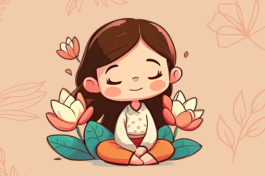ADHD so what?
I have ADHD, so what?
Imagine you had hundreds of TV screens in front of you, and each screen was set to a different channel with the volume turned up, and you didn't know where the remote control was, and someone asked you to stop moving, to concentrate on one thing. How would you feel?
-
How many times have you known exactly what someone was going to say before they said it? And how many times have you been invalidated or sidelined for it?
-
Did you ever know what was going to happen well in advance and then it happened?
-
Did you know the answers to the questions when the person hadn't even finished formulating them?
What if it's all just a different way of perceiving the world and communicating?
What if there's nothing wrong with her children, or with you?
What if we're just different?
I propose a videoconference on Monday October 7 with the zoom link below from 8pm to 8:45pm.
I'll be sharing what we can do differently for these children who will one day grow up with the tools of Access Consciousness®.
Link to connect: https://us02web.zoom.us/j/84564896103
I'd like to share with you the highlights of the 8th International Symposium on ADHD held in Geneva at the end of September.
What are we talking about?
I myself have ADHD, as do my children, and I was able to identify it at the age of 53. I can assure you that ADHD can't be caught at that age! I've always had it, even if as a child I was able to hide it in the hope of being a well-behaved little girl. On the other hand, ADHD doesn't always stop with adulthood. You know what I mean?
During my training to become a certified Access Consciousness® facilitator, after 10 years as an NLP Master Coach, I discovered another possibility thanks to the Access Consciousness® tools. I was finally able to stop judging myself for always being impatient, dissatisfied, angry at I don't know what, and stop feeling guilty whenever I changed plans at the last minute.
I also stopped getting angry at others who reacted more slowly than I did and could only do one thing at a time.
Above all, I understood that having ADHD didn't define me as a person, but was just an indication of how my brain naturally works. I also discovered why I had lived for too long with the pain of always being excluded and my inability to understand this world. Wishing with all my being to become like everyone else, I was exhausting myself in setting up coping mechanisms, living in constant frustration because no matter what I did , it wasn't going to be like that!
I was lucky enough to discover music at the age of 7, and more specifically the piano , which was to be the remedy for my "inattention", "impulsiveness", "impatience" and "mood swings". I could see that being different becomes a talent in certain areas.
What's more, learning to play the piano requires Attention, Concentration, Managing and prioritizing different information and Repetition.
Playing the piano :
- These are 2 hands that don't play the same thing.
- It means reading 2 musical staves at the same time in 2 different clefs.
- And managing three pedals with only 2 feet!
TOO COOL, all the info at once and all in disorder!
Having developed these skills through piano lessons, I began to make fewer careless mistakes at school, to take the time to read all the instructions, and to repeat lessons aloud and as many times as necessary.
This enabled me to hide my difficulties from school and my family and to achieve an above-average education, challenging myself to always be the 1st.
And yes, there are different types of ADHD, and sometimes having ADHD doesn't prevent you from performing well and striving for success.
That's why we need to feed them with challenges, projects and learning in all directions, and give them the means to achieve them. That's what makes them amazing.
Do one thing at a time and you've got an inescapable recipe for failure and the extinction of your talents and self-confidence.
We don't feel emotions the way others do, and we have a slightly different thought process, jumping too quickly to the result.
It's this non-linearity that unsettles our teachers, who are astonished that we have the final result without the appendices. How many times have you or one of your children been accused of copying their neighbor's work and experienced such unfair humiliation?
We don't understand why people don't do what they say, pretend not to know what they really know and move so slowly.
We don't learn in a linear way and sometimes our reasoning seems to be very creative and goes in all directions.
"What if creativity were the science of fun?" A. Einstein
This is how we become "super Sharlock Holmes" in order to discover the teacher's expectations for being in the norm. We develop spatial and specific observation skills and learn to reproduce what others do.
These children can succeed brilliantly if we develop and validate their hyper-connection to the world and to the emotions of others, enabling them to discover that not everything is important to everyone. Yes, we capture everything on the same level, and it's exhausting. Your children don't do anything for nothing and don't understand when someone says or does something that doesn't matter to them.
- What does that mean?
As soon as we experience a situation where people who adore each other just before then start denigrating each other, spreading rumors, we enter a state of endless anxiety, no longer knowing where the truth lies and more precisely whether we are really loved. Pretending is torture!
I'd like to be able to create another perspective with these children and find out what they know and what they see rather than trying to make them believe and see what we think we know and think we see?
By asking your children how they perceive the world, what they feel, what they know and what they need, you'll give them the keys to access their own special knowledge, and help them discover the codes of this reality. This is how they'll begin to trust themselves. That's how you'll help them become the talented adults they can be.
Finally, don't forget that you're not alone in this journey, and that having ADHD isn't all it's cracked up to be. There are many associations, therapists and coaches.
An experienced coach can guide you to ask yourself real questions about what is.
I can guide you towards this new way of communicating with others and yourself, so that you can let go of the barriers that define and limit your life, your perception and your vision. Together, we can transform your differences into possibilities, so you can be the real you, and be present in every choice you make, even in a world you don't understand.
Never forget that you've always had the ability to choose, and that it's time to recognize that even if you're different, you're still part of this world.
You can follow me on my social networks to find out when events are taking place about opportunities for you and your children to be the difference you are!
See you soon
Facebook and Instagram: @nathaliechevalleraupro



